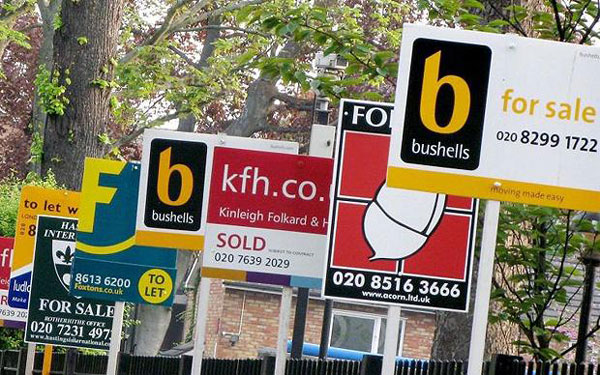First-time Buyer
House price growth hits six-year low

Annual house price growth almost ground to a complete halt in January, with prices just 0.1% higher than the same time last year, the weakest increase in almost six years.
On a monthly basis, house prices grew 0.3% when seasonally adjusted, a turnaround on December, when monthly prices dropped by 0.7%, according to the latest figures released by Nationwide.
The average price for this month stands at £211,966, slightly down from £212,281 in December 2018.
Nationwide’s chief economist, Robert Gardner, said this followed a subdued December when annual price growth slowed to 0.5%.
He added: “Indicators of housing market activity, such as the number of property transactions and the number of mortgages approved for house purchase, have remained broadly stable in recent months, but forward-looking indicators had suggested some softening was likely.
“While the number of properties coming onto the market also slowed, this doesn’t appear to have been enough to prevent a modest shift in the balance of demand and supply in favour of buyers in recent months.”
Uncertainty dragging market
Gardner said it is likely the recent slowdown is attributable to the impact of the uncertain economic outlook on buyer sentiment, given that it has occurred against a backdrop of solid employment growth, stronger wage growth and continued low borrowing costs.
He added: “Near term prospects will be heavily dependent on how quickly this uncertainty lifts, but ultimately the outlook for the housing market and house prices will be determined by the performance of the wider economy – especially the labour market.
“The economic outlook remains unusually uncertain. However, if the economy continues to grow at a modest pace, with the unemployment rate and borrowing costs remaining close to current levels, we would expect UK house prices to rise at a low single-digit pace in 2019.”
Struggling but not collapsing
Jonathan Samuels, CEO of Octane Capital, said: “Faced with unprecedented political and economic uncertainty, the property market is in a state of near paralysis.
“A robust jobs market, better wage growth and low borrowing rates are providing a degree of support but are ultimately being overshadowed by the countdown to Brexit. Against such an ominous political backdrop, it’s no surprise new buyer enquiries are in free fall and that sellers are also pulling down the shutters.
“Low single digit price growth in 2019 would be a victory of sorts, especially in the capital which is paying for its over-exuberant growth several years ago. In Brexit, the UK property market is entering genuinely uncharted waters.”
Former Royal Institute of Chartered Surveyors residential chairman Jeremy Leaf said these figures confirmed a market struggling to weather the Brexit storm but not collapsing.
He said: “The fall in December has been replaced by a modest rise in January but this is probably just as much to do with shortage of stock as release of some inevitable pent-up demand in the post-Christmas period.
“Looking ahead, there are probably too many potential bumps on the road to give a clear steer as to the future direction of prices and activity but what is apparent is that there remains a determination among a good number of serious buyers and sellers to find a way of moving on.”